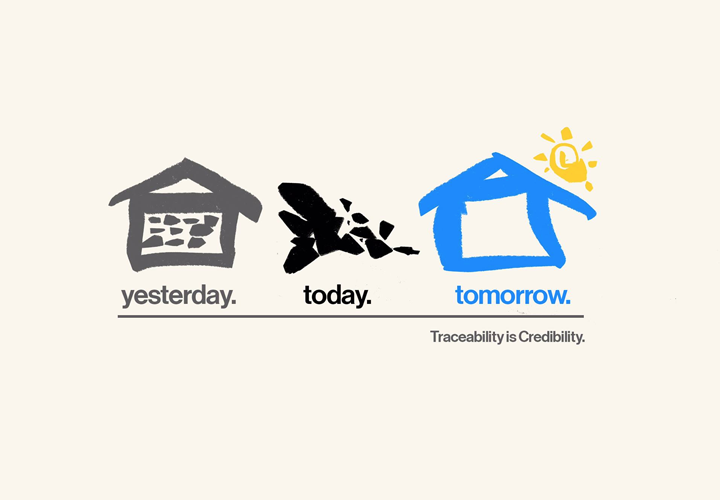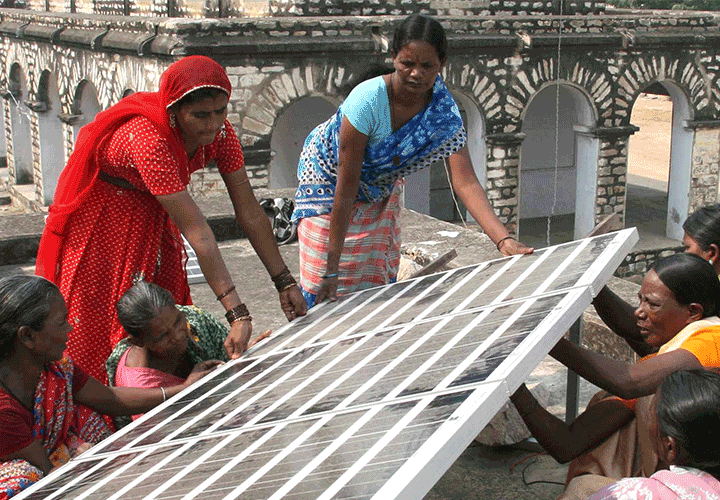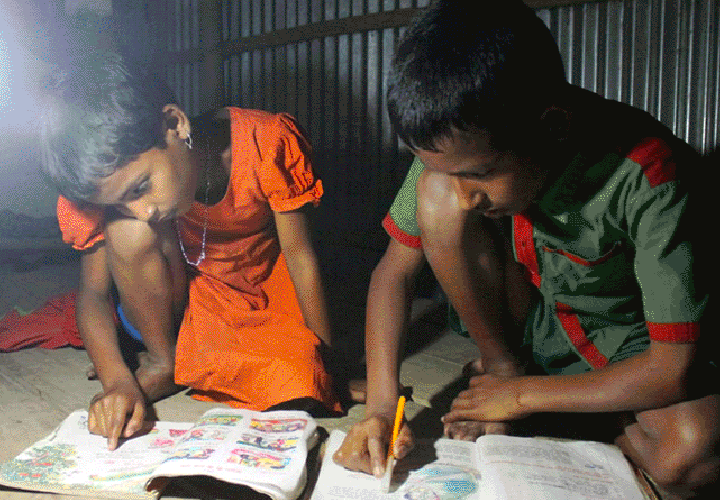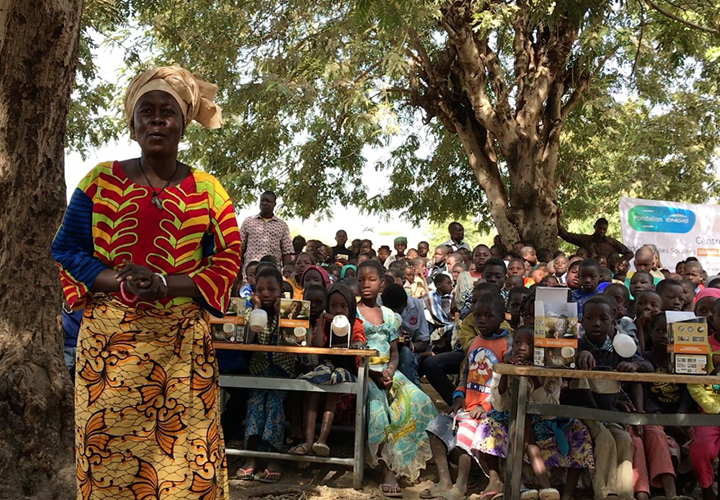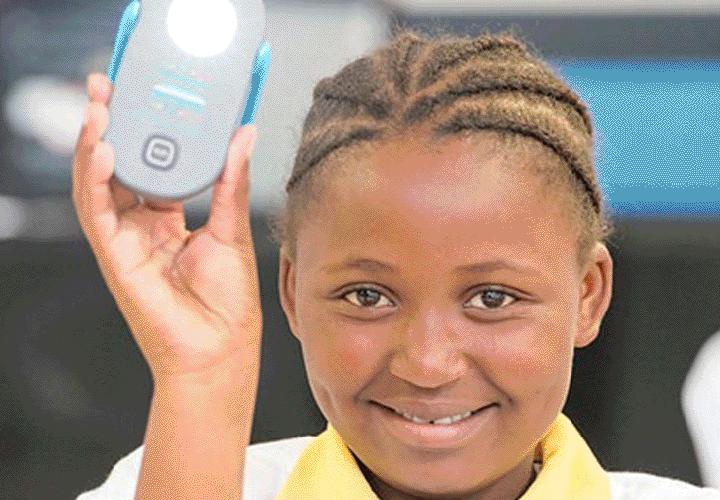We Love Green festival 2018 in the Bois de Vincennes
The weekend of June 2-3, 2018 sees the return of We Love Green, with its rich and eclectic programme, its innovative ideas and its aspiration to change the world. The ENGIE Foundation is proud to be a partner of Paris’s greenest festival for another year!
 What’s on at We Love Green 2018
What’s on at We Love Green 2018
Featuring over 60 concerts, talks, exhibitions and screenings, We Love Green takes place this weekend in the Bois de Vincennes on the eastern edge of Paris. Between 60 and 70,000 festivalgoers are expected this year, with artists including Björk, Charlotte Gainsbourg, Jamie XX and Orelsan set to perform on the site’s two stages. But We Love Green is about more than just music. From the outset, the festival has embraced an eco-friendly ethos, powering its facilities with renewable energy, managing and recycling waste and water, and raising public awareness about organic and local food and recycling, among other commitments.
Another fixture of We Love Green since 2013 is the Think Tank, an ‘ideas lab’ at the heart of the festival which aims to raise maximum awareness of major social and environmental challenges. This year, the Think Tank is rising to new heights in a bid to gain a better overview of the issues facing our planet. Are we really alone in the universe? What is the overview effect? Will we soon need to find another habitable planet after exhausting the resources of Planet Earth? How do we combine technological progress with protecting the world around us? These questions will be addressed in a series of talks, panel discussions and exchanges between the public and guest speakers scheduled throughout the weekend to promote environmentally responsible innovation and come up with practical ideas for our planet. This year’s special guests on the Think Tank stage include philosopher Catherine Larrère, forestry researcher and engineer Ernst Zürcher, economist and author Jacques Attali and oceanographer Patricia Ricard.
As well as talks, there will also be screenings of films from around the world. Located at the heart of the festival, the new screening area will feature a varied programme of films, documentaries and immersive virtual-reality experiences. Finally, in the Think Tank arena, festivalgoers will get to meet 30 start-up companies who will be showcasing their projects through hands-on workshops.
For more information and tickets, click here!
Focus: Yesterday/Today/Tomorrow
C’est la Semaine Européenne du Développement Durable (SEDD) du 18 septembre au 8 octobre 2020. Une semaine dédiée à la préservation de l’environnement et au développement durable. L’occasion, pour chacun de nous et pour la Fondation ENGIE, de partager des actions concrètes et ambitieuses pour imaginer le monde de demain !
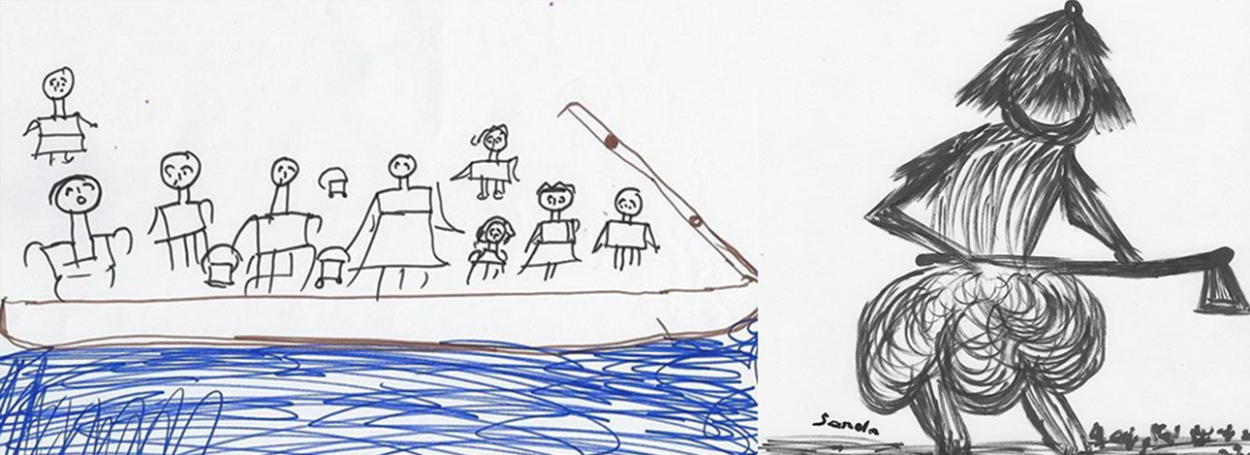
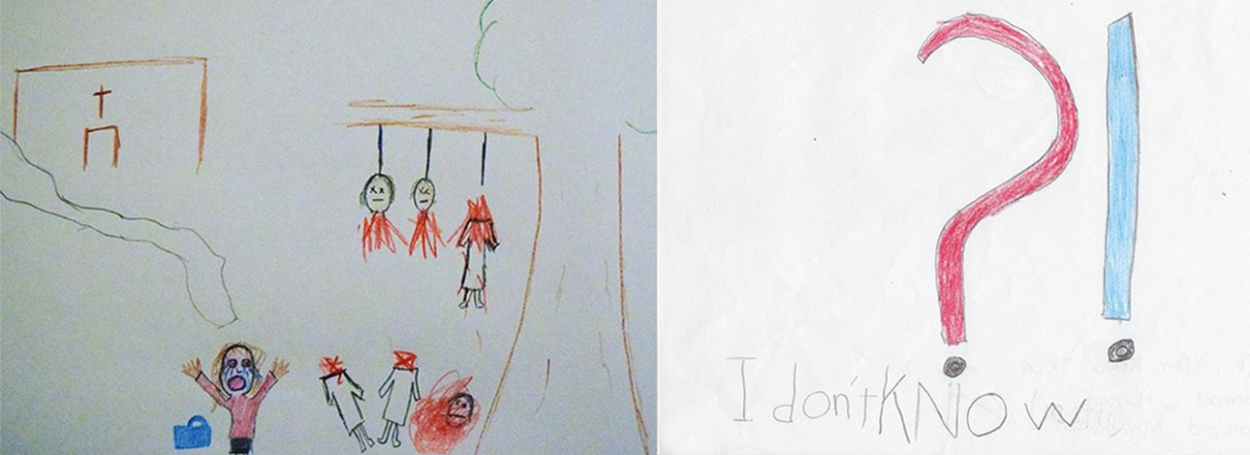
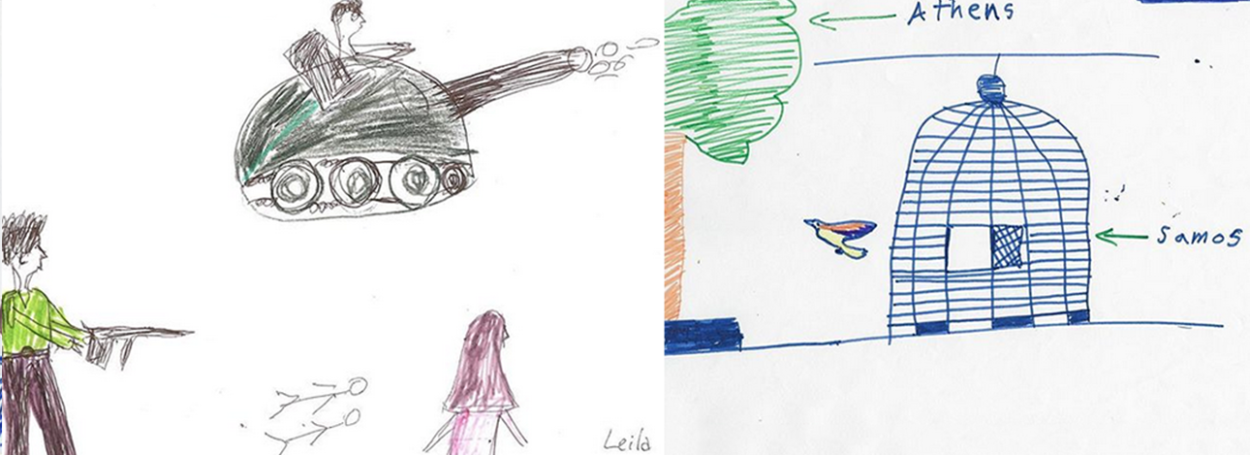
The project in a nutshell
To create his project, the artist spent more than a year in dozens of camps across Europe, where he worked with hundreds of refugee children of many nationalities. He invited them to draw three sketches on three sheets of paper, one of their life before (Yesterday), one of their current life (Today) and one of their life imagined in the future (Tomorrow). The resulting drawings are striking and moving, often mingling the violence of the past, the bewilderment of the present and the difficulty of imagining the future. In three drawings, these refugees get to speak and do what human beings are born to do: tell a story, tell their own story.
The project also aims to disseminate these messages on social media, so that they become fantastic tools for raising public awareness about the plight of Europe’s refugees. You can find Yesterday/Today/Tomorrow on Facebook, Instagram and Twitter.
The artist: Bryan McCormack
Bryan McCormack was born in Dublin in 1972 but lives and works in Paris. Most of his work deals with specifically social and political topics. He has organised over 30 solo and group exhibitions in venues including the Centre Pompidou and UNESCO in Paris, the Empire Gallery in London and the Chopin Museum in Valldemossa. One of his monumental public works is a permanent installation in Paris’s Parc de Saint-Cloud.
The ENGIE Foundation works with and for women
Celebrated every year since 1977 in many countries around the world, International Women’s Day is as relevant today as ever…and will remain so until full equality between men and women is achieved. This year’s theme is ‘Time Is Now: Rural and Urban Activists Transforming Women’s Lives’.
Change could be now
This year’s International Women’s Day takes place against an unusual backdrop, following the unprecedented global movement championing women’s rights, equality and justice that has emerged in recent months. This has taken the form of global campaigns, including #MeToo in the US and its equivalents in other countries (#BalanceTonPorc in France, #YoTambién in Mexico and Spain, #QuellaVoltaChe in Italy, etc.) targeting sexual harassment and violence against women. This high-profile campaign has encouraged women to speak out and triggered a public debate on issues that sadly are still considered taboo. So the time is ripe to tackle the deep-seated inequalities between men and women and above all to effect change!
International Women’s Day 2018 is an opportunity to transform this momentum into action and to empower women in both rural and urban environments. Of the world’s 800 million illiterate individuals, 75% are women. And yet women are often the linchpins of development. They are innovators who work hard to improve the day-to-day lives of their families.
25 years of commitment to women
The ENGIE Foundation’s work reflects the need to support women-led projects worldwide. In the Philippines, the Barefoot Women Solar Engineers programme trains illiterate women to bring electricity to their villages. In France, the Ikambere programme empowers, facilitates access to rights and promotes the social inclusion and workforce integration of HIV-infected migrant women.
This year, the ENGIE Foundation wanted to do even more to help women by supporting new projects. The Women’s Empowerment programme run by American NGO CARE operates more than 1,000 projects in 94 countries, aimed at making women’s empowerment a major focus of the fight against poverty. Fondation des Femmes (Women’s Foundation) is a platform that raises funds from private institutions and individuals and redistributes them to organisations that promote women’s rights. Aware (Archives of Women Artists) aims to restore the presence of women artists in the history of art through a range of high-quality programmes, a dedicated website, symposiums and a prize supported by the French Ministry of Culture.
Women’s rights begin with girls’ rights, which is why the ENGIE Foundation is committed to providing a better future for thousands of girls affected by inequality and discrimination around the world, primarily by promoting access to education. This is the objective of the NGO PADEM in Kenya, which offers free education to teenage girls in the Kibera slum on the outskirts of Nairobi, and the Promoting Afghan Girls Education programme which has electrified 13 schools enabling 27,000 Afghan girls to access education. In South Africa, the iNSPIRE programme aims to rebuild the confidence of girls subjected to discrimination and exclusion, make them aware of their potential and empower them to contribute actively to the development of their country. The ENGIE Foundation believes that educating boys is key to changing mentalities, which is why it supported the UNESCO Open Campuses, which seek to make high-school students in educational priority areas more aware of major social issues such as gender equality. Last but not least, many programmes address the vital need to support girls who have been victims of violence by improving access to education and care. These include the TARA Girls programme in India, which provides accommodation, support and protection to girls affected by violence, including academic support, sporting and artistic activities, and awareness workshops on hygiene and health.
A different world with different women
International Women’s Day is also an opportunity to celebrate the activists who work tirelessly to champion women’s rights and help women to reach their full potential. As members of our Board of Directors or Selection Committees and as heads of charitable organisations, they give us the benefit of their expertise, commitment and endless determination. The ENGIE Foundation wishes to thank and pay tribute to these women, who fight daily to ensure that every girl and woman will one day be able to lead the life they choose.
Finally, the ENGIE Foundation has decided to support Yann Arthus-Bertrand’s forthcoming documentary Woman, scheduled for release in 2019, in which the renowned photographer and director will pay homage to all the women who, in their own way, change the world.
Record results at Friendship's schools in Bangladesh
The NGO Friendship has been helping Bangladesh’s most disadvantaged communities since 2002. Most live on ‘chars’, ephemeral islands in the Brahmaputra River that disappear during floods, leaving local people in conditions of extreme hardship. This article profiles Friendship and its wide-ranging work to support the people of Bangladesh, in particular its educational access programme which is delivering results far beyond expectations.
Friendship’s comprehensive system of support
Founded by Runa Khan, a leading figure in Bangladesh and a long-standing partner of the ENGIE Foundation, Friendship works to empower people in need in the most remote parts of the country through a sustainable and integrated approach to development.
In 2002, the NGO dispatched its first hospital ship to bring medical care to the inhabitants of the Brahmaputra river islands. Nowadays, some 250,000 people a month are treated by this health programme. It also delivers emergency relief when required, providing basic necessities as well as raising awareness about natural disasters. In addition, Friendship is committed to preserving the culture heritage of the communities it serves, and works to promote access to energy. Since 2011, 500 microgrids powered by solar panels have been installed with the support of the ENGIE Foundation. This year, the number is expected to reach 4,000, providing over 20,000 people with sustainable, locally-generated energy.
Promoting access to education
Since 2015, thanks to the support of the ENGIE Foundation and volunteers from Energy Assistance France, Friendship has been implementing a comprehensive plan to boost literacy by building schools and adult education centres. The aim is to make the schools sustainable by installing photovoltaic panels, mobile so that they can be easily dismantled and moved in the event of a natural disaster, and fun (courtesy of video lessons, a portable school library, gardening and biodiversity awareness lessons, and so on).
This innovative model is proving successful as all 56 students who completed their three years of lower secondary education in the schools launched by Friendship in 2015 were awarded their school certificate! This compares with a nationwide pass rate of 83%. Bangladesh’s Information and Communication Technology Minister Zunaid Ahmed Palak has congratulated Friendship and is keen to see more schools built in the near future.
Empowering 2,000 young people in Burkina Faso
In developing countries, and particularly in Africa, access to energy is a top priority. The ENGIE Foundation and the H.R.H. Princess Abze Djigma Foundation have decided to join forces to promote access to sustainable and affordable energy for people living in rural areas in the Centre-Sud region of Burkina Faso. Read on to find out more.
The H.R.H. Princess Abze Djigma Foundation
Currently, 1.1 billion people have no access to electricity while around 1.5 billion have only limited access (source: World Bank Group 2017). In Africa, two thirds of the continent’s population, some 650 million people, are without access to power. With Africa’s population set to increase by 1 billion within the next 30 years, this poses an enormous challenge. In some rural areas of Burkina Faso, less than 3% of households are connected to the power grid, forcing local people to resort to dangerous and inefficient fuels for lighting and other everyday needs.
Set up by Her Royal Highness Princess Abze Djigma, the H.R.H. Princess Abze Djigma Foundation is a non-profit organisation dedicated to supporting access to affordable and sustainable energy for people in developing countries. It also aims to reduce poverty by providing and deploying energy and biodiversity solutions for women and young people:
– Supply and installation of solar panels
– Training in the installation, use and maintenance of solar generation solutions
– Irrigation systems to increase local agricultural productivity
– Provision of a platform to stimulate entrepreneurship.
MAMA-LIGHT® and the ENGIE Foundation in Burkina Faso
The ENGIE Foundation has joined forces with the H.R.H. Princess Abze Djigma Foundation to support its MAMA-LIGHT® initiative. The initiative provides access to affordable and sustainable energy sources for women, small businesses, children and disadvantaged young people around the globe. Selected by the United Nations at the Solutions Summit at the UN General Assembly in 2015, the programme also drives the generation of new jobs and creates a sound basis for gender equality and women’s empowerment.
The partnership signed between the ENGIE Foundation and the H.R.H. Princess Abze Djigma Foundation on December 18 will provide 2,000 schoolchildren and students from the Centre-Sud region of Burkina Faso (1,000 girls and 1,000 boys) with a MAMA-LIGHT® portable solar lamp.
Schools, Lights and Rights: an encouraging second year
Launched as part of COP21 in 2015, the Schools, Lights and Rights pilot programme is one of the ENGIE Foundation’s flagship initiatives. Its strength lies in a) its ambition of promoting education, access to energy and the social inclusion of disadvantaged groups, b) the involvement of partner organisations and volunteer employees from the ENGIE Group over at least a three-year period, and c) the results it has achieved during the first two years of the programme. Read on to find out more.
Schools, lights and rights for the children of Africa
Through the Schools, Lights and Rights project, the ENGIE Foundation and the federation of charities La Voix De l’Enfant (The Voice of the Child) have been creating brighter futures for children in need around the world since 2015. This ambitious three-year programme spanning seven countries (South Africa, Burkina Faso, Morocco, Madagascar, Afghanistan, India and France) seeks to promote education (Schools), access to energy (Lights) and the social inclusion of children (Rights).
In its first year, more than 5,000 civil statuses were issued to children. In addition, 5,000 portable solar lamps were distributed. Paid for by the ENGIE Foundation, these lights facilitate access to education by allowing children to work at home in the evening. They also promote health and safety by reducing the risks associated with using candles and oil lamps. The programme also supported the green electrification of schools by solar panels, thanks to the courage and dedication of volunteers from Energy Assistance France (an NGO made up of ENGIE Group employees). Last but not least, volunteers worked with local communities to raise awareness of renewable energies, environmental protection and sustainable development – a reminder that the future of these communities and the future of our planet are interlinked.
Schools, Lights and Rights: an encouraging second year
The second year began with the aim of expanding and strengthening the programme, helped by support from local organisations and partners in two new countries: Cameroon and the Democratic Republic of the Congo. La Voix De l’Enfant member associations, with backing from the ENGIE Foundation, were able to strengthen the support mechanisms for local communities: more than 57,000 civil statuses were obtained, over 8,600 portable solar lamps distributed and many schools and childcare centres provided with solar power. In addition, seven electrification projects are currently being completed by La Voix De l’Enfant associations and volunteers from Energy Assistance France. Though a modest contribution to the fight against global energy poverty, this programme offers great potential to develop social and environmental initiatives that benefit children.
The smiles on the children’s faces are the greatest reward, but the ENGIE Foundation wishes to thank the member associations of La Voix De l’Enfant and their partners who contribute every day to improving the living conditions of people enduring energy poverty and social exclusion. They are: Valued Citizens (South Africa), Afghanistan Libre (Afghanistan), SOS Enfants, Enfants & Développement (Burkina Faso), AED Karen Mane (Morocco), Bazar Sans Frontières and Maison de Sagesse (Madagascar), Volontariat (India) and Intermèdes Robinson (France).

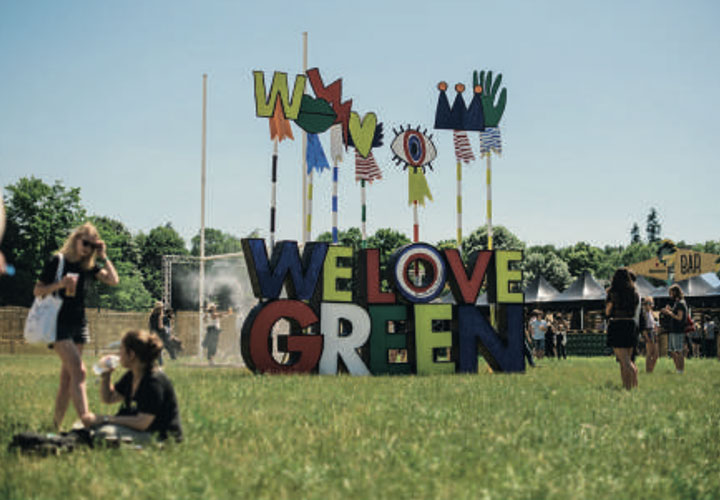
 What’s on at We Love Green 2018
What’s on at We Love Green 2018